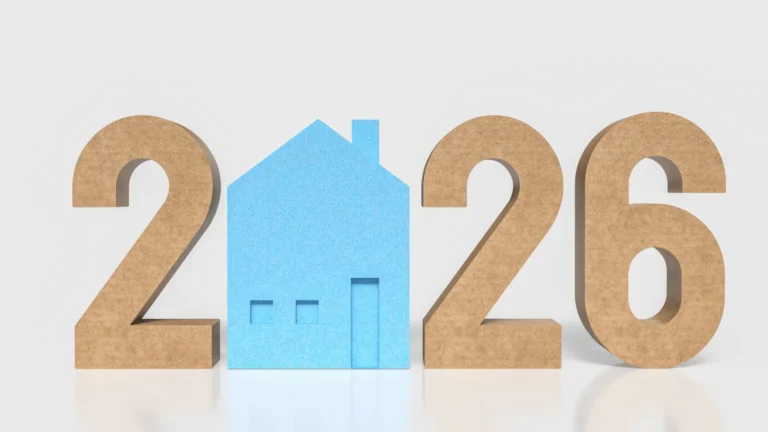Selling your home can often feel like navigating a complex maze—filled with unexpected turns and the occasional dead end. When your house languishes on the market longer than anticipated, it’s not just a financial strain; it can become a major emotional burden. Understanding why your home isn’t selling is the first step towards remedying the situation. This guide delves into practical strategies to help reignite buyer interest and facilitate a faster sale. From pricing adjustments to enhancing your home’s appeal, each step is geared towards addressing the common pitfalls that might be hindering your sale.
How long do most houses stay on the market?
The duration that a house remains on the market can vary widely depending on several factors, including location, market conditions, and pricing strategy. On average, homes can stay on the market for about 25 to 60 days before receiving an offer. However, this timeline can be significantly shorter in a seller’s market where demand outstrips supply, leading to quicker sales. Conversely, in a buyer’s market, homes may linger on the market longer due to greater availability than demand. Understanding these trends can help sellers adjust their strategies to match current market conditions, potentially reducing the time their home spends on the market.
What is the main reason a house doesn’t sell?
The primary reason a house may not sell quickly often boils down to pricing. If a home is priced too high, it can deter potential buyers, regardless of the property’s qualities or the market conditions. It’s essential to set a competitive price based on a comprehensive market analysis, which includes reviewing similar properties that have recently sold in your area. Incorrect pricing can lead to a prolonged stay on the market, eventually requiring price cuts to attract interest. This initial mispricing can be avoided with the help of a knowledgeable real estate agent who understands local market trends and can provide a realistic valuation.

What to Do When Your Home Isn’t Selling
Real Estate Pricing Strategies for Quick Sales
A competitive pricing strategy is crucial for attracting potential buyers. Realtors should conduct a thorough Comparative Market Analysis (CMA) to determine an appropriate asking price. The CMA should include recent sales of comparable properties, current market conditions, and adjustments for unique features or upgrades in the home. If a home is overpriced, it may deter potential buyers, so it’s essential to adjust the price to align with the current market realities.
Enhancing Curb Appeal to Sell Homes Faster
Enhancing curb appeal is a powerful tool in a realtor’s arsenal. Simple changes such as updating landscaping, painting the front door, or installing new exterior light fixtures can significantly impact a buyer’s first impression. Realtors should advise their clients on specific improvements that can increase the home’s attractiveness and perceived value.
Real Estate Marketing Tips for Higher Engagement
Effective marketing goes beyond just listing the property. Realtors should use professional-quality photos and create compelling property descriptions that highlight the home’s best features. Incorporating virtual tours and utilizing social media platforms can expand the reach and engage more potential buyers. It’s also beneficial to adjust marketing strategies based on feedback and analytics to ensure the home reaches its target audience.
Home Repair Tips for Sellers
Realtors should walk through the home with their clients and identify any minor repairs that need addressing. Fixing issues like leaky faucets, loose handles, and cosmetic damages can improve the home’s appeal and demonstrate well-maintained care. Small improvements or renovations can make a big difference in how potential buyers perceive the value of the home.
Effective Home Staging Techniques
Encouraging clients to depersonalize and declutter their homes can make the space more inviting and allow potential buyers to imagine themselves living there. Realtors might suggest professional staging services to enhance the presentation further, particularly in key areas like the living room, master bedroom, and kitchen.
Attracting Home Buyers with Creative Incentives
Offering incentives can be a strategic move to make a property more appealing. Realtors can recommend that sellers offer to pay closing costs, include high-end appliances, or provide a home warranty. These incentives can be particularly attractive in competitive or slow markets and may just be the push needed for a buyer to make an offer.

Planning Successful Open Houses
Realtors should organize and host open houses to create buzz around the property. Ensuring that the home is clean, well-lit, and inviting during these events can significantly increase interest. Providing detailed information sheets and being ready to answer any questions can also enhance the visitor experience.
Using Buyer Feedback to Improve Home Sales
Collecting and acting on feedback from showings is critical. Realtors should discuss any consistent feedback with the seller to determine if further adjustments are necessary, whether in pricing, staging, or additional repairs.
Evaluating Real Estate Agent Performance
If a home isn’t selling, it might also be helpful to evaluate the marketing efforts and client communication strategies. A proactive realtor stays on top of market trends and adapts strategies as needed to ensure the property sells for the best possible price and within a reasonable timeframe.
Strategies to Move Forward When Your Home Won’t Sell
Navigating the sale of your home, especially when the market seems unresponsive, requires patience and a willingness to adapt your strategies based on feedback and market dynamics. While the average time on the market can vary widely, understanding these fluctuations helps tailor your approach to either expedite or adjust expectations about the selling process. Remember, every home has its buyer; it’s about making the right adjustments to bridge their paths. Implementing the strategies outlined in this guide not only increases your chances of a quicker sale but also empowers you with the knowledge to navigate future real estate endeavors with confidence.


